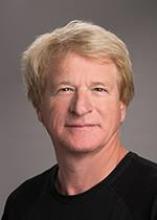Mandatory Junior Advising
This is one of the two mandatory advising sessions in spring quarter for juniors. The two EECS faculty hosts are
- Prof. Phillip Sheu (CpE)
- Prof. Henry Lee (EE)
This is one of the two mandatory advising sessions in spring quarter for juniors. The two EECS faculty hosts are
Agenda to be Announced
This is one of the two mandatory advising sessions in spring quarter for juniors. Two EECS faculty hosts are
An upcoming lecture on software-defined power management (SDPM) presented by Vojin Zivojnovic.

Neema Shafigh will be giving a talk about oscilloscopes. Oscilloscopes are one of the most important pieces of lab equipment, used to analyze signal in the time domain. Come to learn more about the fundamentals of oscilloscope operation and get some hands on experience with actual oscilloscopes after the lecture!
Neema Shafigh is an Applications Engineer at Keysight Technologies (formerly Agilent Technologies). Mr. Shafigh began his career with Broadcom, working for 10 years in the R&D department of its Central Engineering team.

This presentation will review the outcomes of the third Industrial Revolution with specific focus on space electronic applications and will speculate on the challenges and opportunities of the next one.

The annual Ingenuity showcase features the top UCI student innovations from both the Donald Bren School of Information and Computer Sciences and The Henry Samueli School of Engineering. Highlights of the evening include:

The Associated Graduate Students (AGS) and The Associated Students of UCI (ASUCI) are putting on the 6th annual One World Concert! The One World Concert is a talent show that celebrates UCI in all its wonderful multicultural glory, and will feature performances from faculty, grads, and undergrads.
If you’d like to sign up to perform, the link is here: http://www.ags.uci.edu/one-world-concert-performer-submission-form/

In this presentation, Rabaey will make the case why alternative non-Von Neumann computational paradigms and architectures may be the right choice for these cognitive processing tasks. Even more, he will focus on a computational model called Hyper-Dimensional Computing (HDC), and illustrate with concrete examples of why this approach may be the right one in a post-Moore data-driven arena.
Agenda to be Announced